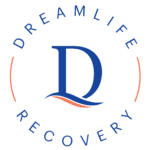Drug Rehab in Pittsburgh, PA


A growing tech hub and home to the Penguins, Pirates, and Steelers, Pittsburgh is vibrant with innovation while still maintaining a hometown feel. Pittsburgh has a population of over 300,000, ranking in as Pennsylvania’s second-largest city. Steel production became the city’s major trade in the late 1800s, resulting in it being nicknamed “Steel City.” Currently, Pittsburgh is home to over 300 bridges and still employs thousands of people in the steel industry.
However, as Pittsburgh grew in population, the steel industry fell in popularity. Most of the city’s steel production moved overseas, leaving many in Pittsburgh without a job. This rise in population and simultaneous fall in economic prosperity led to an increase in drug trafficking. An issue still prevalent in the city today.
How Substance Abuse Affects Pittsburgh
Pennsylvania ranks fourth-highest in drug overdoses per capita, so it is no surprise that Pittsburgh is heavily affected by substance abuse. In fact, the city’s overdose death rate has virtually doubled in recent years. Though opioids account for the majority of Pittsburgh’s overdose deaths, benzodiazepines also play a hand. This is partially due to how easily people can overdose when they combine benzodiazepines with alcohol or other drugs. Additionally, Pittsburgh has a problem with online drug trafficking. Though measures are being taken to reduce this, it is still a major obstacle for the city.
How Pittsburgh Is Combating Substance Abuse
Pittsburgh understands the growing drug problem plaguing its community and is ready to take action. In 2015, the FBI worked with Pittsburgh to establish an opioid task force. This helps to limit online drug trafficking, as well as other methods of trafficking. Rehab options are also abundant in Pittsburgh. These facilities are committed to monitoring patients closely as they journey through every step of the recovery process. From detox to aftercare, drug rehab Pittsburgh has the bases of recovery covered – and even accepts most insurance plans.
Drug Rehab in Pittsburgh
When it comes to detoxing and inpatient therapy, drug rehab in Pittsburgh offers effective residential treatment. This type of treatment is characterized by patients living in on-campus facilities. There, they can be guided and looked out for throughout recovery.
It is often safer for individuals to detox at a facility than at home as they have access to medical attention and education. Severe withdrawal symptoms can prevent people from completing detox, so it is best they do it in a monitored environment. Furthermore, for many people in early recovery, being in an environment that is free of temptation makes managing their addictions easier.
In residential treatment, patients explore the underlying causes of their addiction, helping them to address their substance abuse problems at the source. Additionally, patients can develop close bonds with their peers while in residential treatment. Being away from their support system can be hard, so this is an important part of recovery. Inpatient rehab uses group therapy to facilitate peer relationships and reduce feelings of loneliness.
Outpatient Drug Rehab in Pittsburgh
For those whose outside commitments prevent them from entering into inpatient treatment, outpatient programs are valuable options from drug rehab in Pittsburgh. These programs allow patients to spend time at home while still undergoing treatment. The amount time spent in treatment day-to-day is dependent on an individual’s needs and circumstances. The following are the three levels of outpatient treatment:
- Partial Hospitalization Program (PHP). For patients that need intensive care daily but want the freedom to return to their homes at night, PHP programs are an ideal option. In this type of program, patients undergo treatment in a medical facility. There, they receive different therapies every day for the majority of the day.
- Intensive Outpatient Program (IOP). IOPs are best for patients who still need frequent treatment but are ready to transition down from a PHP. IOPs also use a variety of evidence-based therapies; however, patients spend less time in treatment and more time at home than they would in a PHP.
- Standardized Outpatient Program (OP). The least intensive form of outpatient rehab, this type of program consists of patients going to treatment a few days a week. Usually, the sessions last less than two hours per treatment day. Generally speaking, outpatient programs are designed to prepare patients to integrate back into the world smoothly while successfully navigating sobriety.
Specialized Drug Rehab Programs in Pittsburgh
Treatments even extend past outpatient and residential programs. Centers for drug rehab Pittsburgh offer specific programs that meet unique needs, allowing patients to recover in an environment that is safe and staffed by empathetic specialists who understand the unique needs of someone struggling with addiction. The types of programs available for inpatient and outpatient rehab patients include:
- First responders programs
- Professional programs
- LGBTQI+ programs
- Trauma therapy programs
- Family therapy programs
- Aftercare/Alumni services
Holistic Drug Rehab in Pittsburgh
Pittsburgh offers holistic treatments that address the needs of the whole person – mind and body. This includes your physical, mental, and spiritual well-being. Holistic strategies are important to a healthy recovery as they instill long-term healing and coping mechanisms that establish a firm foundation to build a life of meaningful recovery. The following are some examples of holistic therapies/strategies:
- Adventure therapy
- Yoga
- Mindfulness
- Meditation
- Self-actualization
Drug Rehab in Pittsburgh, PA
Do not put off getting help any longer. Give yourself the gift of a long and healthy life by taking the first step towards recovery today. This rewarding journey will put you back in control of your life while opening your future up to an endless world of possibilities. DreamLife Recovery is here to help you help yourself. Start healing today by contacting DreamLife at (855) 495-0356.






